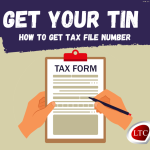New Zealand boasts a stunning natural landscape, but understanding its tax system can feel like navigating unfamiliar terrain. This comprehensive guide delves into the key features of New Zealand’s taxation framework, equipping you with the knowledge to make informed decisions.
Tax System Overview
New Zealand operates a progressive income tax system, meaning tax rates increase as your income rises. This system aims to achieve a fairer distribution of the tax burden. The government also levies a Goods and Services Tax (GST) on most goods and services supplied in the country. Let’s break down these two main components:
- Income Tax: Income tax applies to various income sources, including salaries and wages, self-employment income, investment earnings, rental income, and overseas income. The Inland Revenue Department (IRD) is responsible for administering income tax.
- Goods and Services Tax (GST): GST is a broad-based consumption tax of 15% applied to most taxable supplies of goods and services in New Zealand. Businesses registered for GST collect this tax on behalf of the IRD and can claim credits for GST they have paid on their business inputs.
Individual Income Tax Rates
New Zealand’s income tax system utilizes a marginal tax rate structure. This means different tax rates apply to different portions of your income. As your income increases, you enter higher tax brackets, and the portion of your income falling within those brackets is taxed at a higher rate. Here’s a breakdown of the current individual income tax rates for the 2023-24 tax year:
- Up to $14,000: 10.5%
- Over $14,000 and up to $48,000: 17.5%
- Over $48,000 and up to $70,000: 30%
- Over $70,000 and up to $180,000: 33%
- Over $180,000: 39%
Important Note: These are marginal tax rates. You don’t pay the entire rate on your whole income. For example, if you earn $55,000, you only pay 10.5% on the first $14,000, then 17.5% on the amount between $14,001 and $48,000, and finally 30% on the remaining amount up to $55,000.
Other Taxes
Beyond income tax and GST, New Zealand levies a few other notable taxes:
- ** fringe benefit tax (FBT):** Applies to certain non-cash benefits provided by employers to employees.
- Residential rental property tax: Introduced in 2021, this applies to certain types of residential rental properties.
- Property tax: Applies to land in some local authorities.
- Capital gains tax (CGT): Generally, New Zealand does not have a capital gains tax on the sale of assets like shares or property. However, there are exceptions for specific situations.
Tax Filing
Most New Zealand residents must file an annual income tax return with the IRD by a set deadline, typically in late October or early November. This return details your income and allows the IRD to calculate any tax owing or determine if you are entitled to a tax refund.
Understanding Tax Codes
When you start a new job in New Zealand, your employer will ask you for your tax code. This code instructs your employer on how much tax to deduct from your salary or wages at source through a system called Pay As You Earn (PAYE). Choosing the correct tax code ensures you pay the appropriate amount of tax throughout the year.
IRD Resources
The IRD website [IRD website] provides a wealth of information on New Zealand’s tax system, including tax rates, filing procedures, and tax codes. They also offer various online tools and calculators to help you estimate your tax liability and navigate your tax obligations.
Seeking Professional Advice
For complex tax situations, seeking professional advice from a tax agent or accountant is recommended. They can help you interpret tax laws, optimize your tax position, and ensure you are compliant with your tax obligations.
Conclusion
Understanding New Zealand’s tax system can empower you to make informed financial decisions. Whether you’re a resident, a new arrival, or an investor, familiarizing yourself with the key features of the system can help you navigate your tax obligations smoothly. Remember, this guide provides a general overview, and tax laws can be subject to change. Refer to the IRD website for the latest information and consider seeking professional advice for personalized guidance.






![VAT & SVAT Registration requirements for Tea, Rubber, and Coconut Suppliers – SEC/2024/E/01 [04 Jan 2023]](https://lankataxclub.lk/wp-content/uploads/2024/02/Can-Tea-Rubber-and-Coconut-Suppliers-get-SVAT-150x150.jpg)





